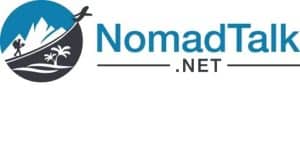The rise of the gig economy is relentless. More than a third of Americans and millions of others around the world are now doing at least some freelancing work. However, from the outside looking in the biggest question is often “can freelance work be a career?”
Freelancing, by definition, is a form of entrepreneurialism where you run your own business, selling your own services. So, yes, absolutely freelance work can be a career, however, if you want your freelancing to be a career – you will need to ensure that you have what it takes and that you keep developing yourself.

Table of Contents
What To Consider Before You Go Freelance?
Before you start freelancing it can be useful to take stock of your situation and answer a few questions honestly:
- Do you have skills that are in demand in the freelance market? In the gig economy, anyone can “freelance” but that’s only because “freelance” has become code for “work with poor pay, no benefits and no security”. Freelancers with skills that people need and are willing to pay for are in a much better position than those without such skills.
- If you don’t have such skills, what can you do to learn them? It blows me away, the number of people who seem to think learning stops at college, school or university. If you lack skills the Internet provides you with an endless number of possibilities to learn them. If you’re broke, go to YouTube or Packt and learn. If you have some money go to Udemy. If you’ve got a lot of money Google for a course in your area and go do that.
- How much will people pay for your skills? This is important. If you make $200,000 a year in your current job and you discover that your skills are only worth $50/hour as a freelancer, you might want to think twice before you quit. Work out what the market will bear before becoming a freelancer.
- Are you driven to freelance? Many people suck at being freelance. It’s not the same as being an employee with a few bosses rather than one boss. You have to learn to sell yourself and your work. You have to send out invoices and if a client doesn’t pay, you have to do the debt collecting. You are responsible for taxes. And so on… freelancing isn’t easy though it can be hugely rewarding. You need the drive to succeed.
What To Do Begin A Freelancing Career?

We strongly recommend that if you want to go freelance, then you start your freelance business while working for someone else.
I didn’t do this. It meant my first year or two in business was an endless struggle. I worked 18-20 hour days to find clients who paid badly and who were often dreadful to work with. It took a long time to be secure enough to start firing the bad clients and to earn decent rates.
If I’d had another income, however, I’d have been much more confident about what I wanted and what I needed too.
The worst piece of digital nomad advice out there is “quit your job, move overseas then sort your income out”.
That’s a recipe for either a.) living in misery in Thailand when you go broke or b.) going back home to sleep on mom and dad’s couch when you go broke. Yes, there are exceptions but only the foolish base big life decisions on exceptionalism.
Research shows that the most successful businesses (of any kind) tend to be those that are started as “side gigs” (a phrase so twee that it leaves us with a little sick in our mouths).
Build your website, get your marketing ready, land a few clients, work your backside off in your spare time learning the ropes and getting ready for the day when you have cash in the bank, a guaranteed income and then quit.
What Do You Need To Do To Make Sure Freelancing Is A Career?
There is only one thing that separates freelancers with a career from those in a dead-end. That’s personal development.
A career freelancer:
- Seeks new challenges. You can’t keep doing the same thing over and over again. The moment you fall into this trap, your work becomes a commodity, If you measure yourself by logos created or articles written in a week… this is a huge warning sign that you’re not pushing yourself. Take on projects that challenge you and stretch you.
- Seeks learning opportunities. You need to grow your skills outside of work as well as inside. You run a business. So, don’t limit yourself to skills that relate directly to your profession – take a course on how to network effectively and you can start finding new clients without cold calling or worse, relying on Upwork for all your cash. Take a course about developments in the industry you serve. Read books on relevant topics every month. Attend a conference in your field.
- Turns those learning opportunities into work. Studying something doesn’t give you experience in it, the only way to make learning relevant to your life is to put into practice. Professionals, those freelancers with careers, don’t sit on their laurels feeling clever, they seek out the opportunities to turn their knowledge into something more.
- Learns from failure. We all go wrong at some point or another. Bad freelancers turn failure into despair. They become discouraged and start to think about finding a job. They moan that it’s not fair. That kind of thing. Smart freelancers turn failure into learning opportunities: what went wrong? What could be done better next time? What help would you need to make it work? That kind of thing.
- Takes care of the business side of things. Freelancing is 50% working at the profession you love and at least 50% sales and marketing, accounting, admin, etc. Career freelancers understand this completely. They always make time in their lives to grow their pipeline, pay their taxes, file their work, etc. These are the skills that free up the other 50% of your time to do the things that you really want to do.
- Spends time around other professionals. It’s hard to be a professional in a vacuum. Professional networking is an essential component of being a career freelancer. You can identify trends in the profession more easily, build contacts to get better work and even access discounts for learning opportunities. No man is an island, and neither is any freelancer worth their salt.
However, unlike most forms of career – there is very little room for professional advancement. Freelancers begin their careers as their own boss. They reach the top of the organization on their very first day and you can’t get higher than that.
If you find that titles and status are what motivate you to get out of bed every day then you might want to continue in employment or alternatively, you can always reinvent your job title every couple of years when you print new business cards and give yourself a sense of “progression”.
One Last Thing: Have A Plan

If you want your freelancing to stay a career and not fall off the edge into a “gig”. Then, it’s a good idea to have a plan for your career as you would in “real life”.
Yes, you’ll need to put together the plan and work out where you want to be and how to get there but there’s a ton of evidence that shows that having written goals can be hugely beneficial to succeeding in life.
If you can bring a sense of purpose to bear on your freelancing life; we guarantee that it will be a career for you and for the long-term.
Conclusion
Yes, freelance work can be a career. It’s up to you to make sure that you start your freelance life at the right time (and we recommend you start freelancing while you still have a job if at all possible).
Then it’s also up to you to take responsibility for your career development and it can help to have a plan to measure your progress against.
